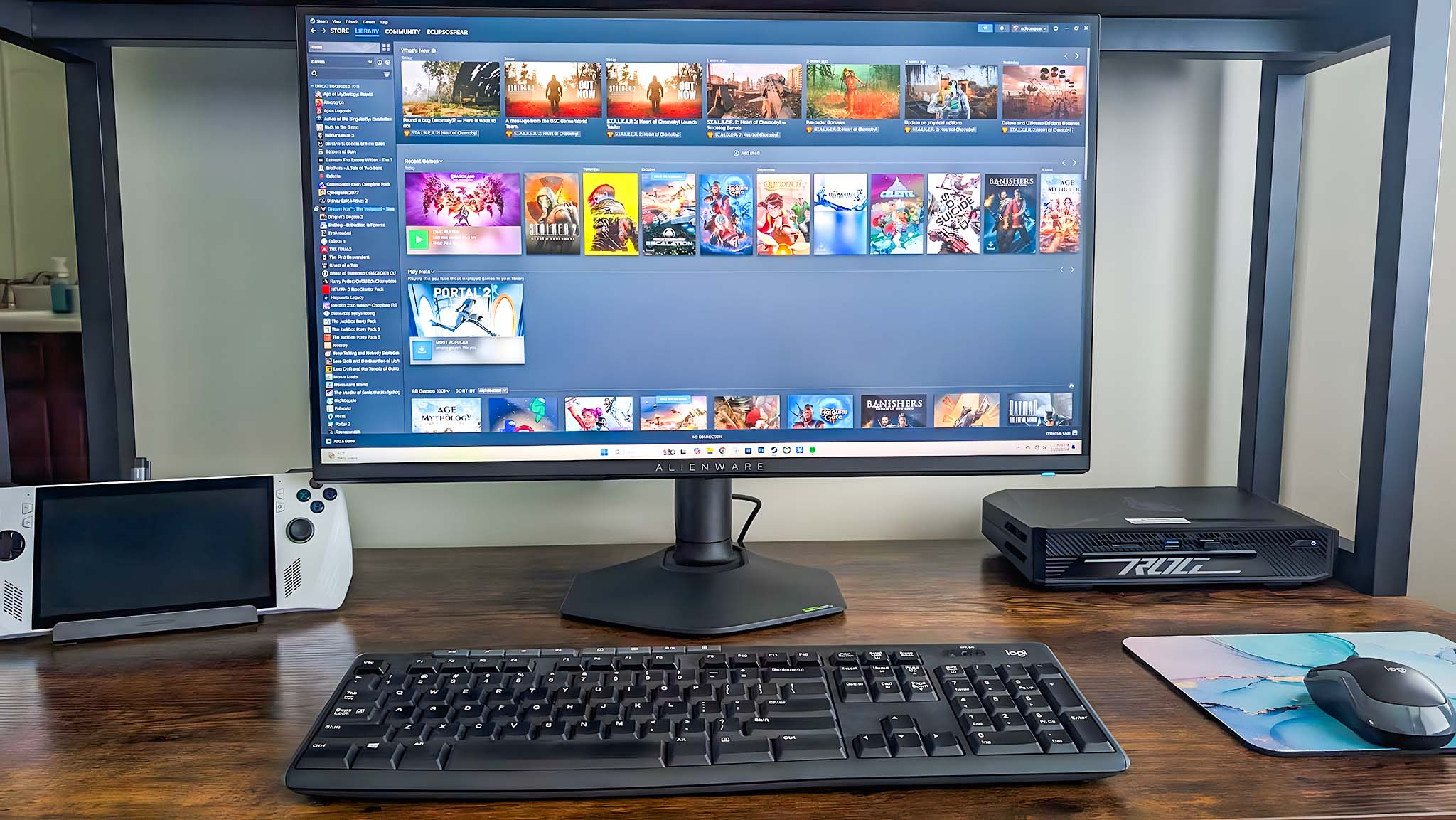Why Lenovo’s latest prototypes have us both impressed and puzzled
A rotating‑screen ThinkBook and a motorized laptop stand headline Lenovo’s IFA 2025 showcase.
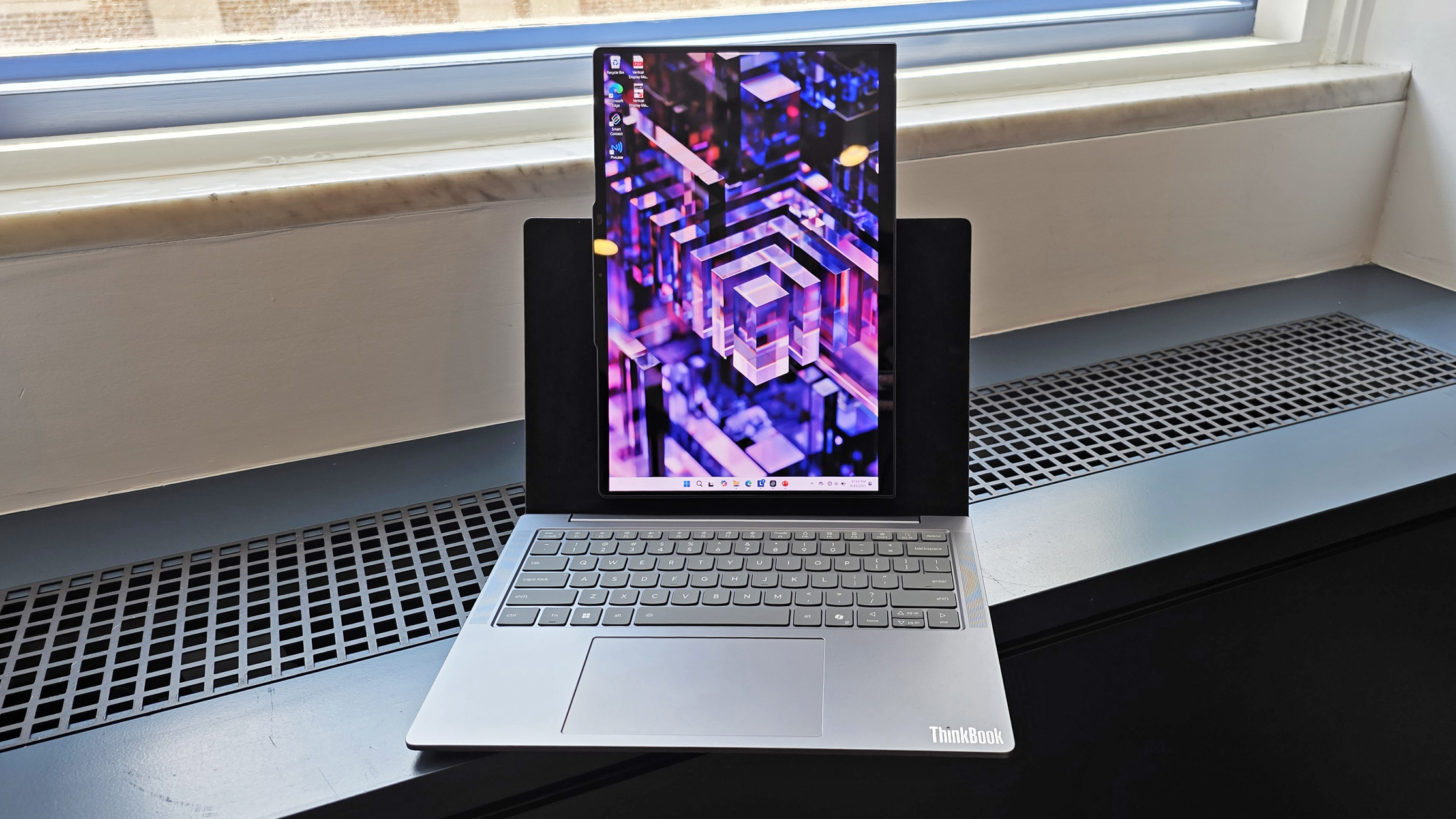

All the latest news, reviews, and guides for Windows and Xbox diehards.
You are now subscribed
Your newsletter sign-up was successful
Lenovo is not shy when it comes to trying new form factors, having led the way for 2-in-1 convertible laptops in addition to displays that fold, transparent displays, and ‘halo’ keyboards.
Indeed, it has become a yearly tradition at IFA for Lenovo to showcase its latest working prototypes to the public, and 2025 is no different. The company revealed two concepts, gathering feedback to decide if they should move forward with shipping these designs.
Lenovo’s “build it, test it” approach led to the unveiling of a prototype of a laptop with a rollable OLED display in 2022, followed by a working prototype in 2023, which then launched as the ThinkBook Plus (Gen 6), a device we have just got our hands on.
For 2025, the top PC maker unveiled the ThinkBook VertiFlex Concept (Project Pivo) and Lenovo Smart Motion Concept (Project Ballet), with the former being a new transforming laptop and the latter a smart multi-directional laptop stand.
ThinkBook VertiFlex Concept: A new way to flip your laptop
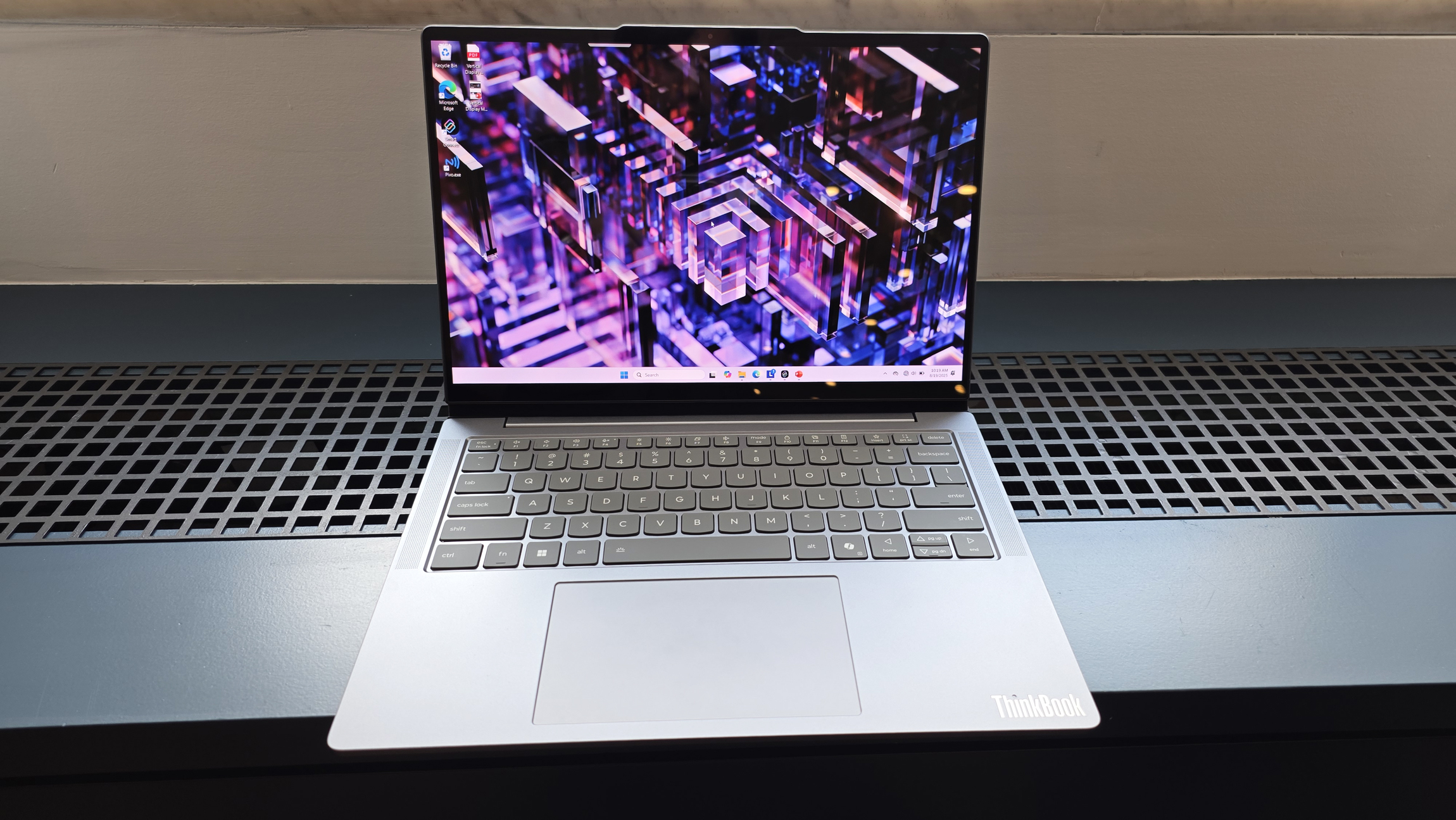
Rotating display. That’s the tl;dr of the ThinkBook VertiFlex, which, as the name implies, lets you switch the orientation of this 14-inch laptop’s display from horizontal to vertical, allowing users to have a multifaceted workflow depending on the content being manipulated. So, for spreadsheets, it’s horizontal and vertical for browsing the web, or snapping two windows on top of each other.
What’s interesting about VertiFlex is that it 100% looks just like a normal 14-inch ThinkBook (17.9mm, 1.39kg or 3lbs), with no other compromises in design. Anyone around you wouldn’t know that it has a trick up its sleeve, which is the rotating display.
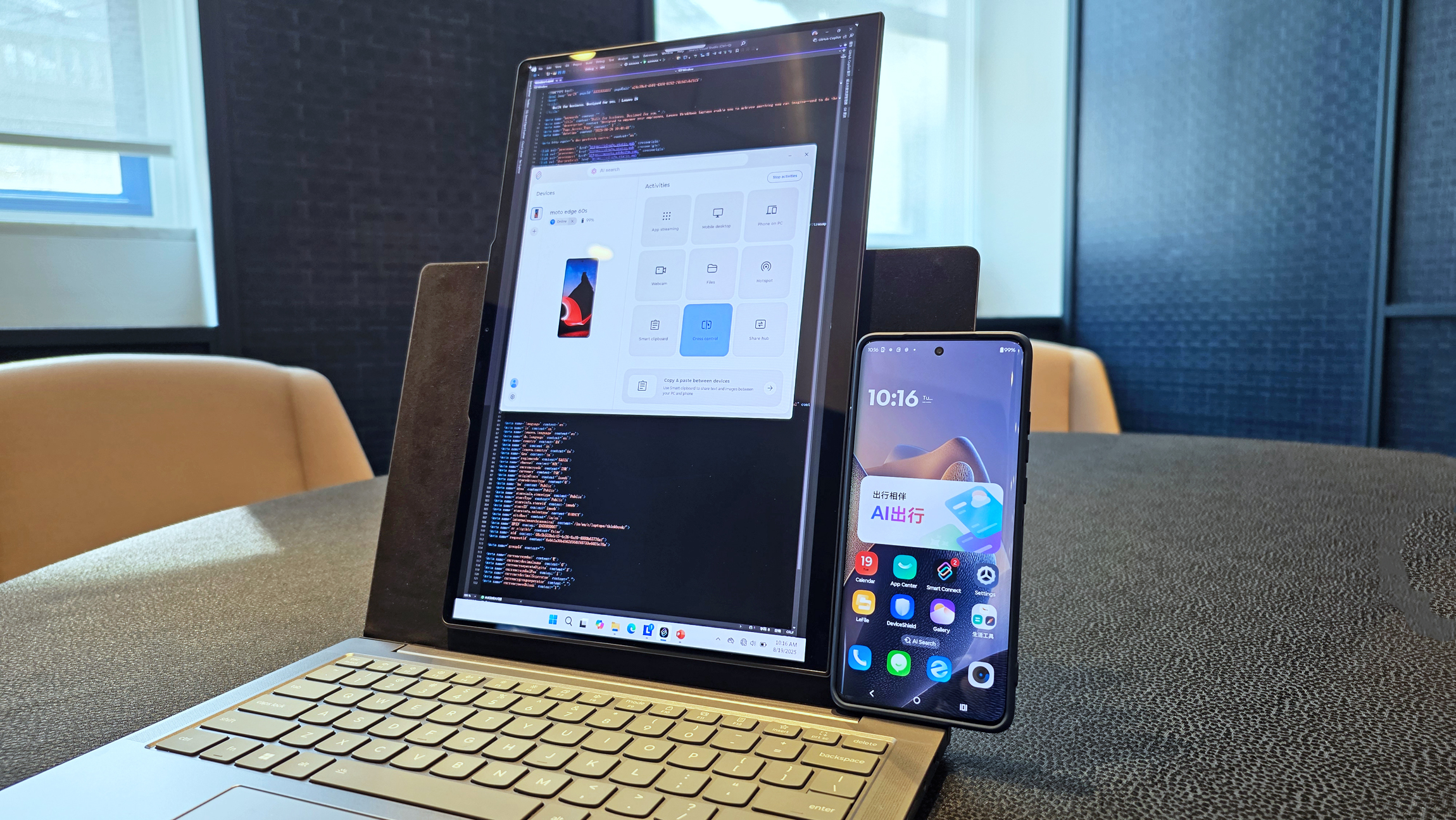
And while it seems simple enough in concept, the gear and hinge work needed to make the effort seamless and effortless results in some complicated happenings behind the display.
All the latest news, reviews, and guides for Windows and Xbox diehards.
To be clear, you shift the display manually, so there is no motor to drive it (which would increase the cost, complexity, and weight). Instead, you just grab the display, flip it into place, where you can feel it “lock” in either position.
Yeah, it takes a bit to get used to, especially knowing the direction in which it moves, but otherwise it feels smooth and elegant.
Once in a vertical position, you can even lean your smartphone against the display’s back and leverage Lenovo’s Smart Connect software (iOS, Android), which allows for phone mirroring or transferring files, effectively making the phone a second screen and a near extension of the ThinkBook.
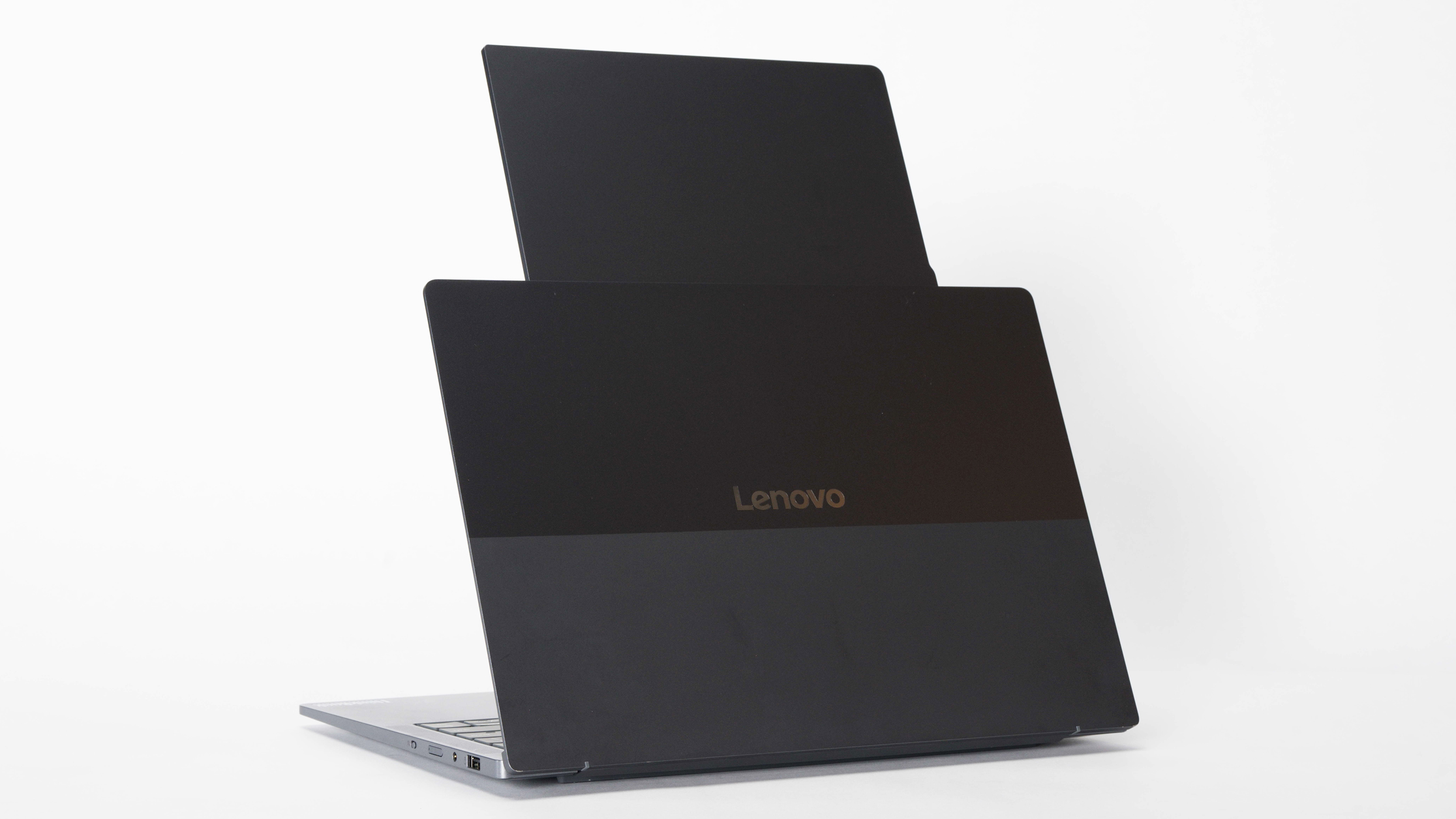
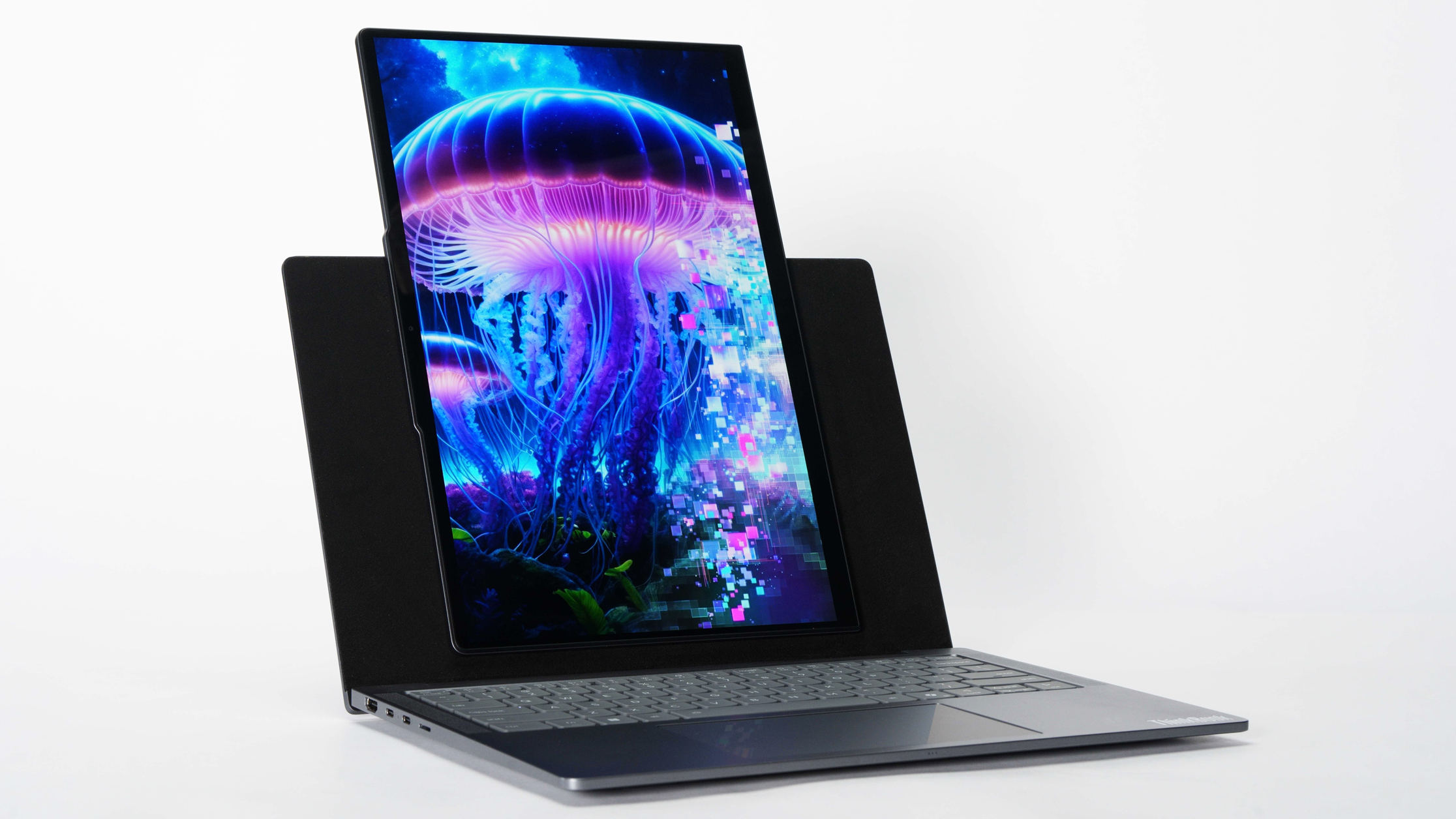
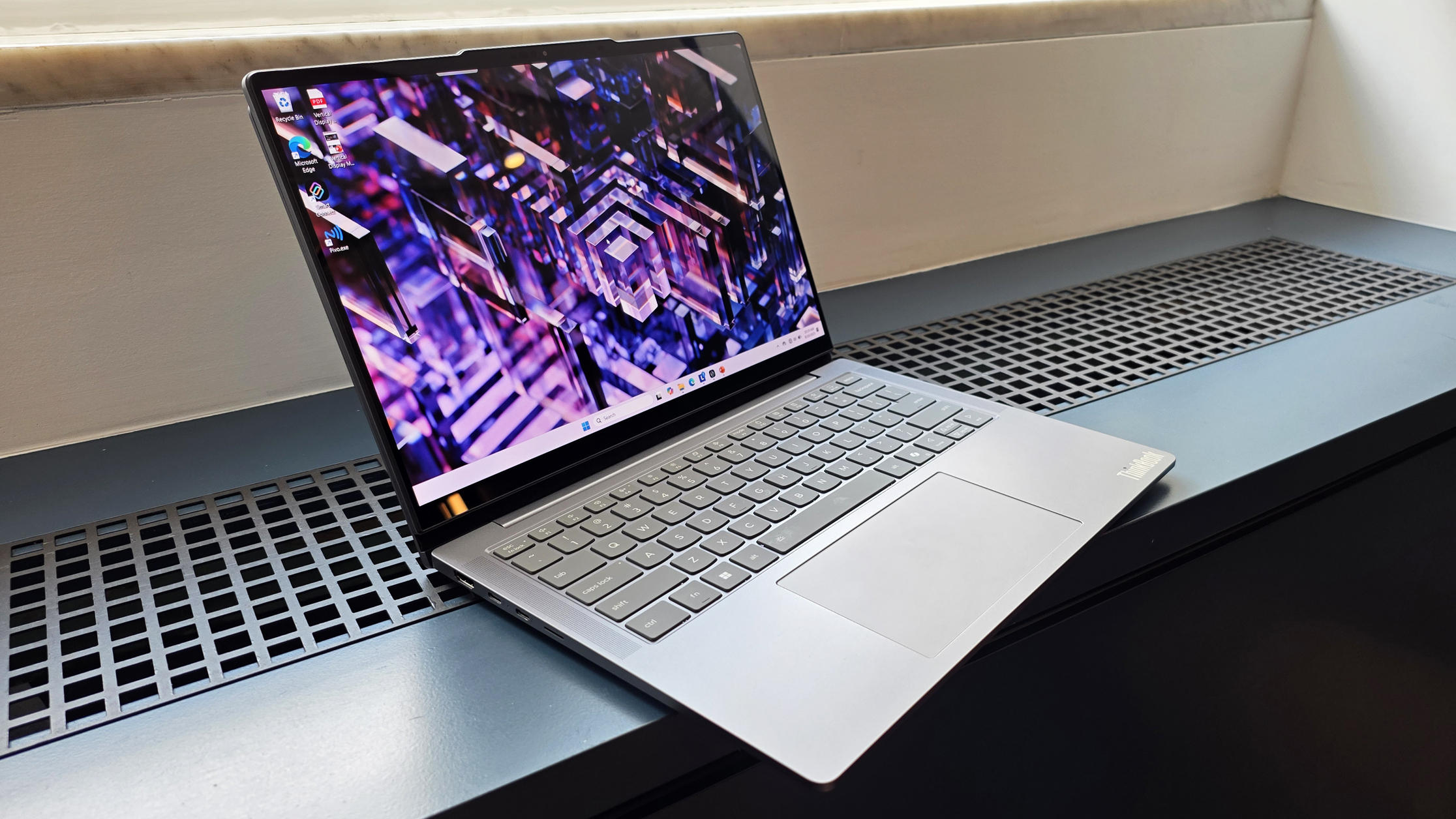
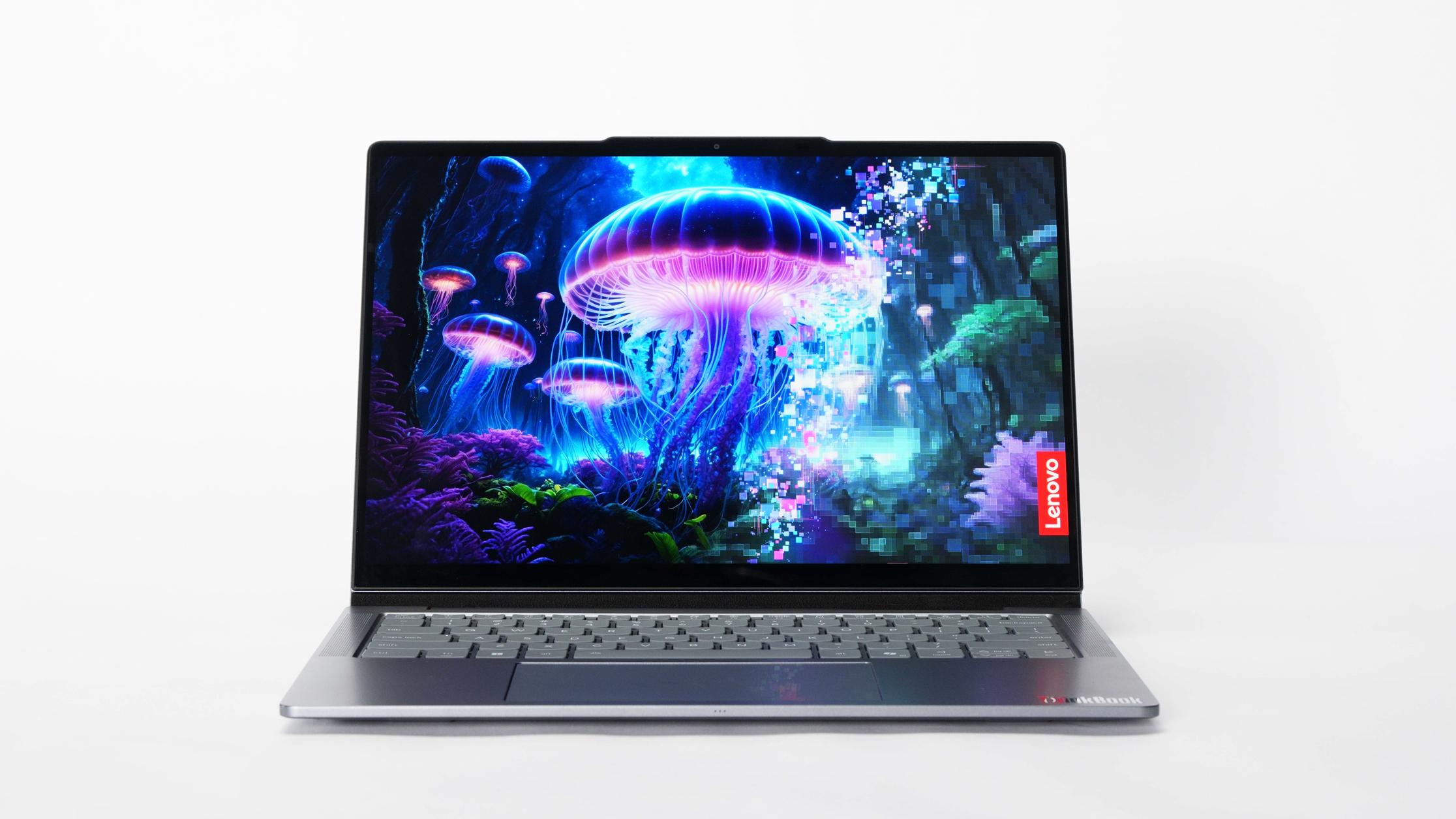
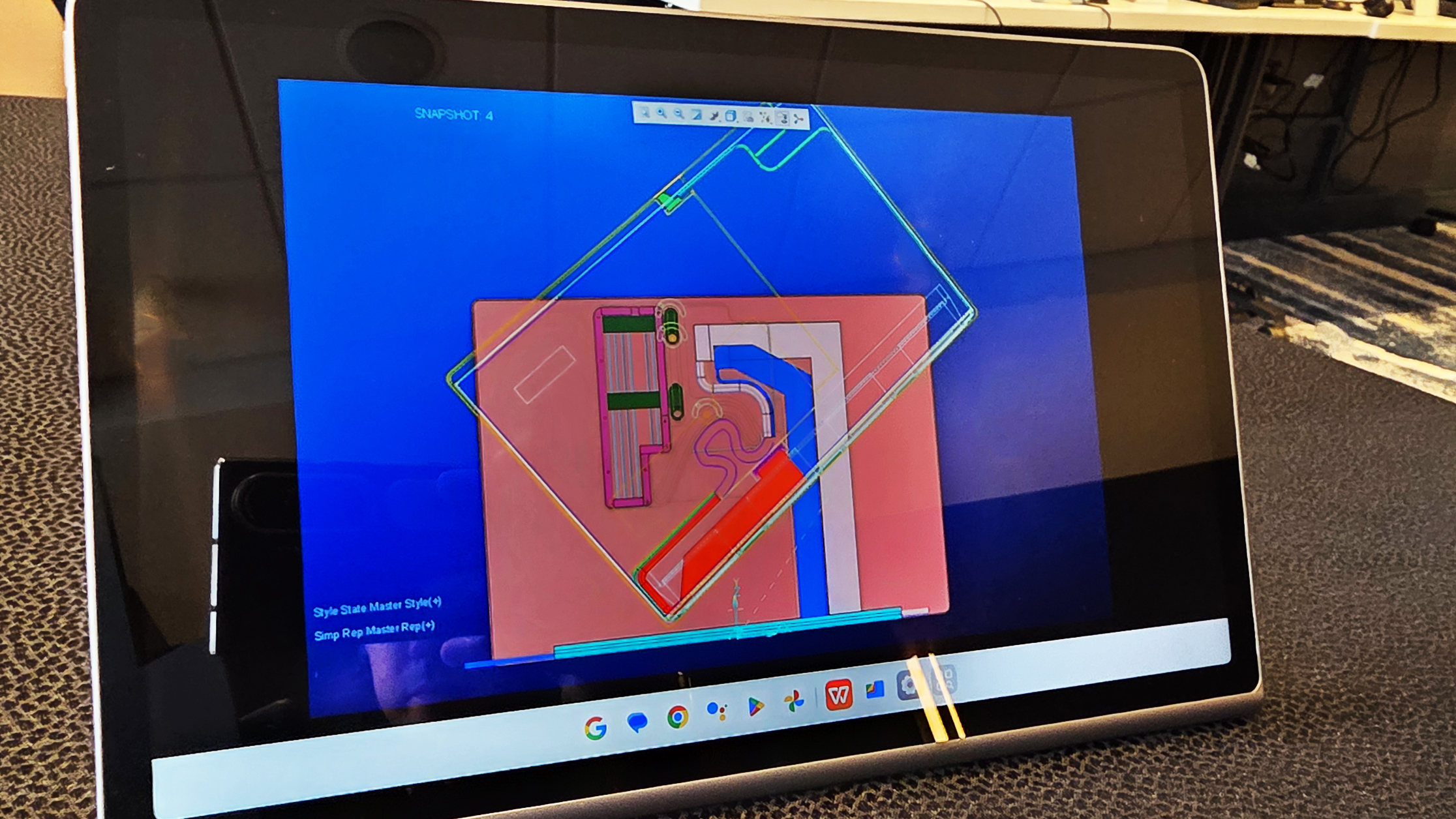
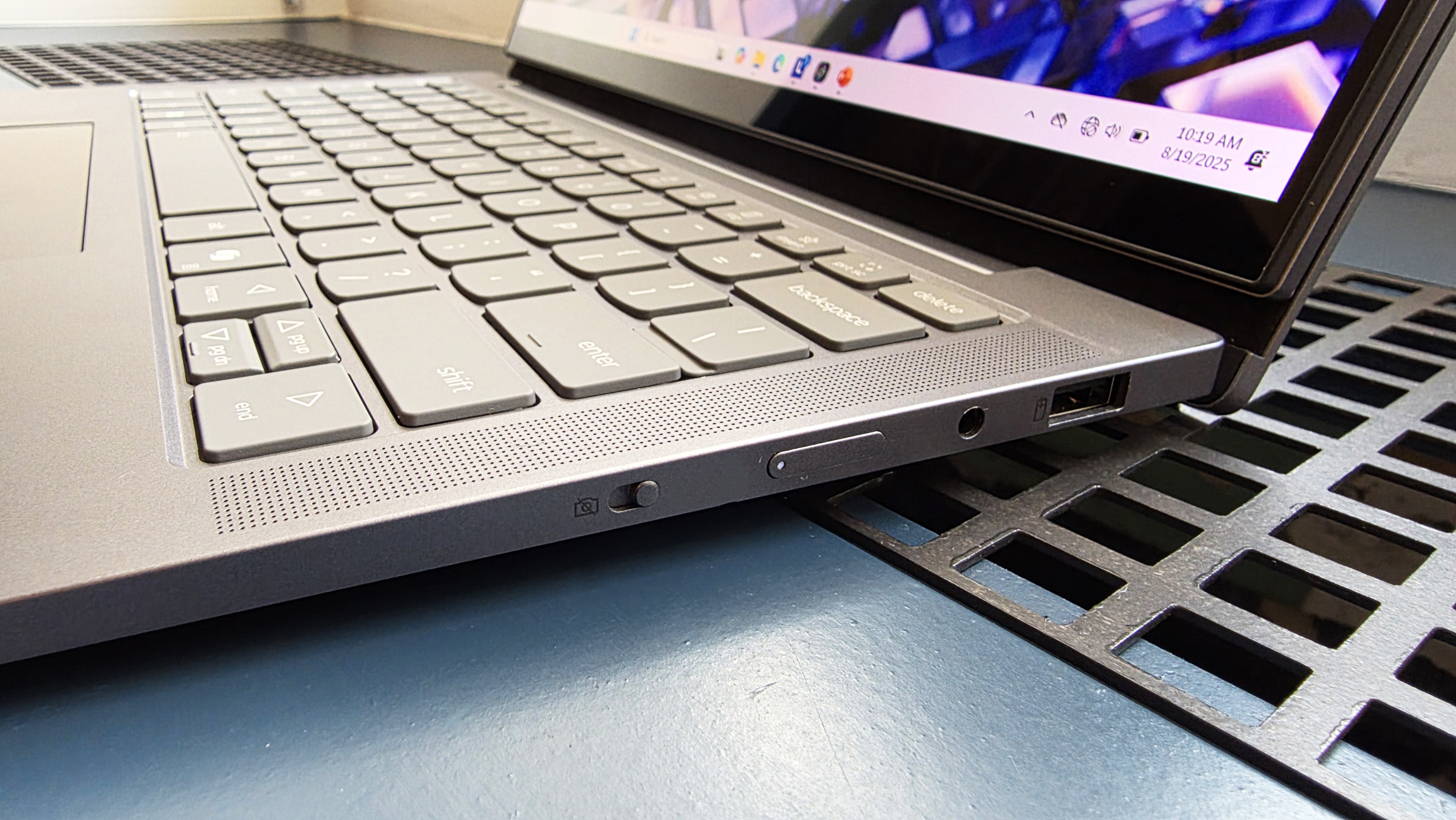
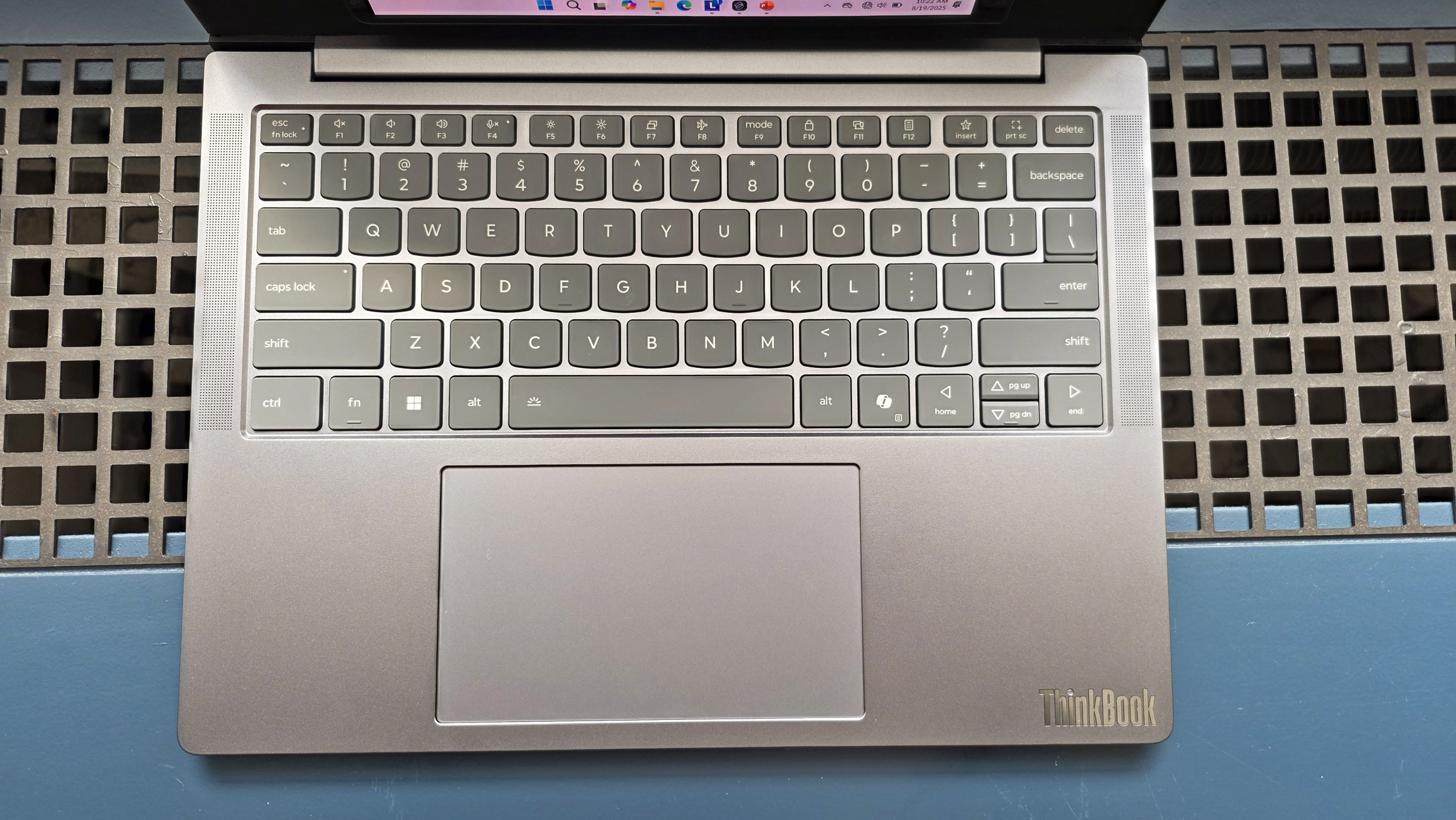
- What I liked: As mentioned above, the VertiFlex hides its potential, meaning you can buy this laptop (were it to be made) and almost forget how it can transform, similar to Microsoft’s Surface Laptop Studio. And while niche, I could see a specialized business audience loving the ability to change the display’s orientation (many of us work with two displays on a desktop PC, with one positioned vertically for Slack, etc.). Also, besides the wacky gear/hinge system that you don’t see, the VertiFlex feels practical, pragmatic, and won’t be nearly as expensive as Lenovo's rollable OLED display.
- What I don’t like: I mentioned “niche” above, and while I see some people yearning for such a design, this definitely doesn’t seem to have a shot at mass appeal, but I could be wrong.
Lenovo Smart Motion Concept: A dancing dock?
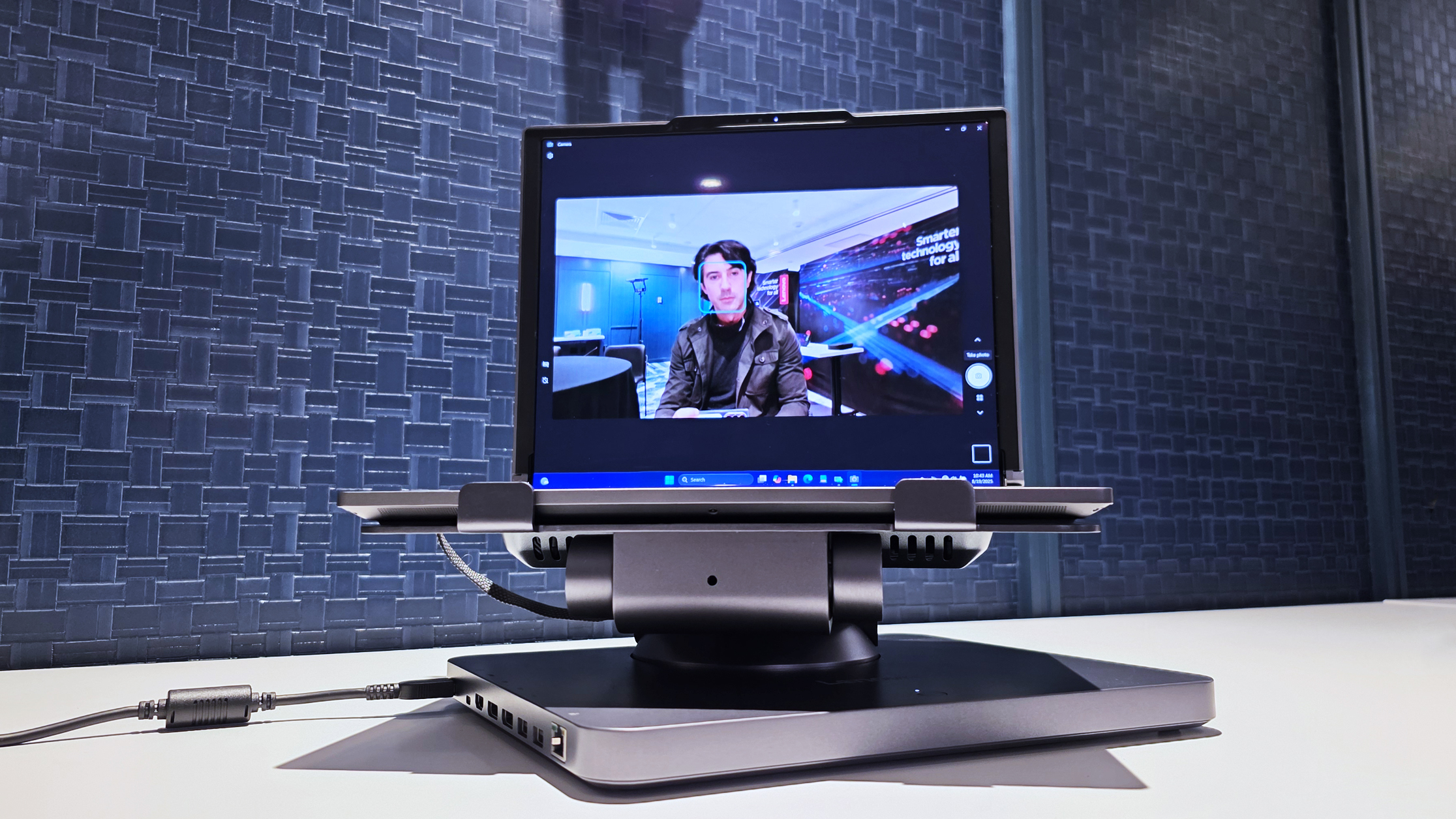
Last year, Lenovo showed off a laptop with a spinning, mechanized display that followed you. The working proof of concept was fun, but it also limits that function to that one laptop.
What if any laptop could dance like that one?
That’s what Lenovo sought to do with Project Ballet, which is the final boss of laptop stands. Not only does it act as a hub with multiple display out, USB, and ethernet ports, but it also has an elaborate dual-fan system to keep your laptop cool and to maximize its performance.
The bonus feature is how the stand, when connected to a laptop (and using its cameras), can move and track you, making it a helpful companion when on conference calls or where you’re constantly moving around (think of people working in labs who have their hands full and are sliding around on roller stools).
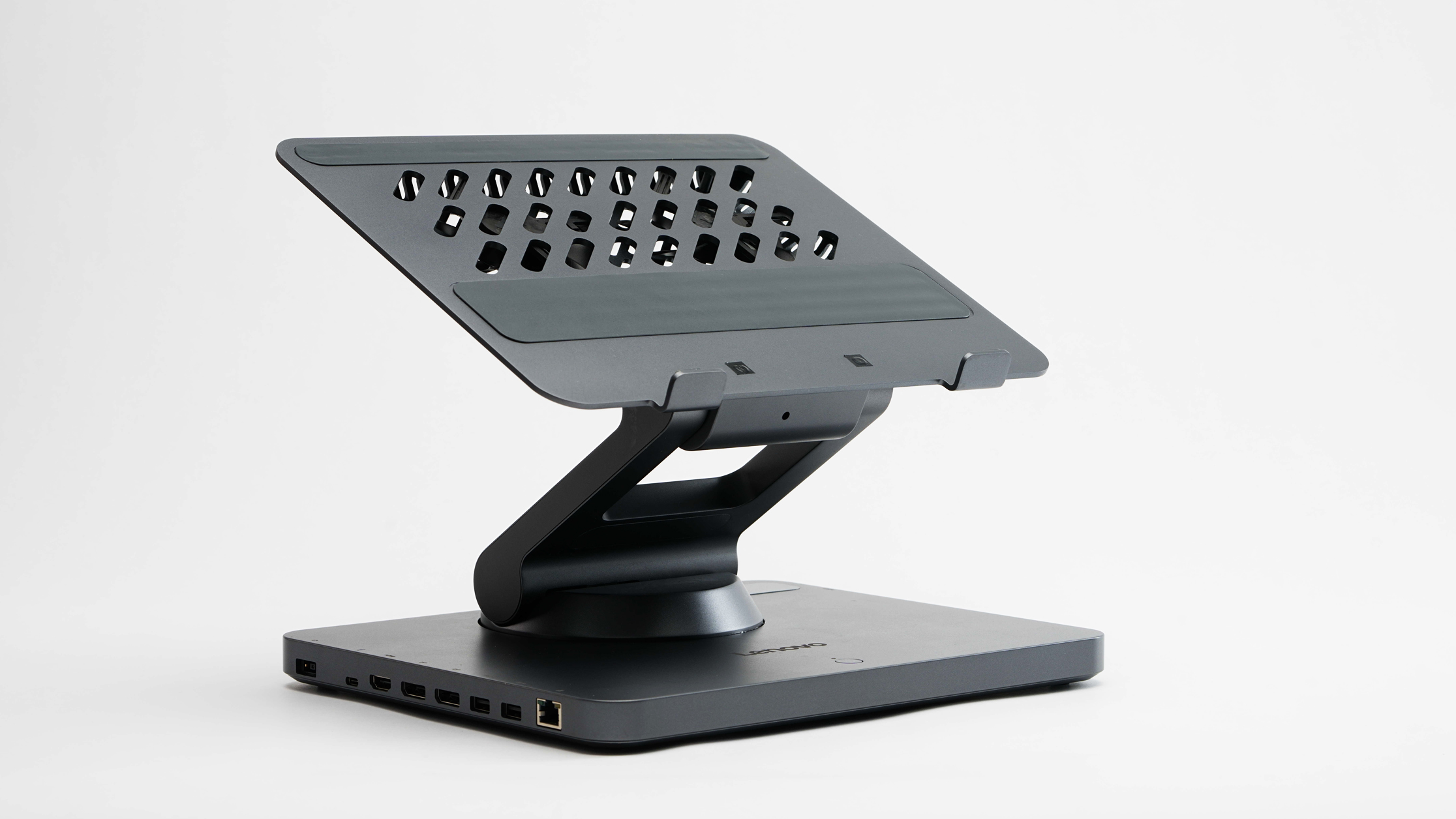
Lenovo even has some ideas for controlling the stand’s movement via gesture control (i.e., waving your hands), or in a more elaborate concept, wearing a special ring for even more accurate tracking.
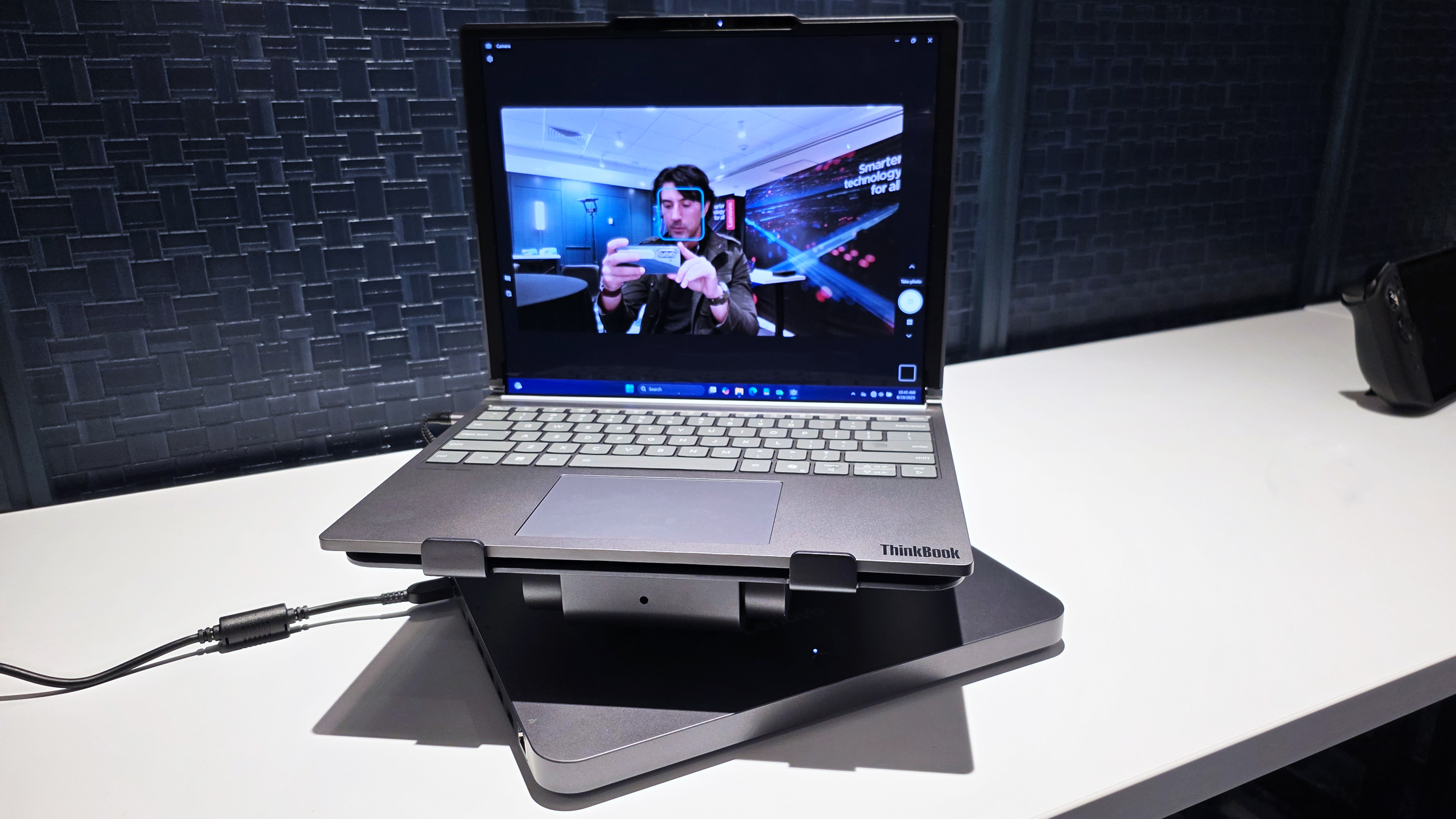
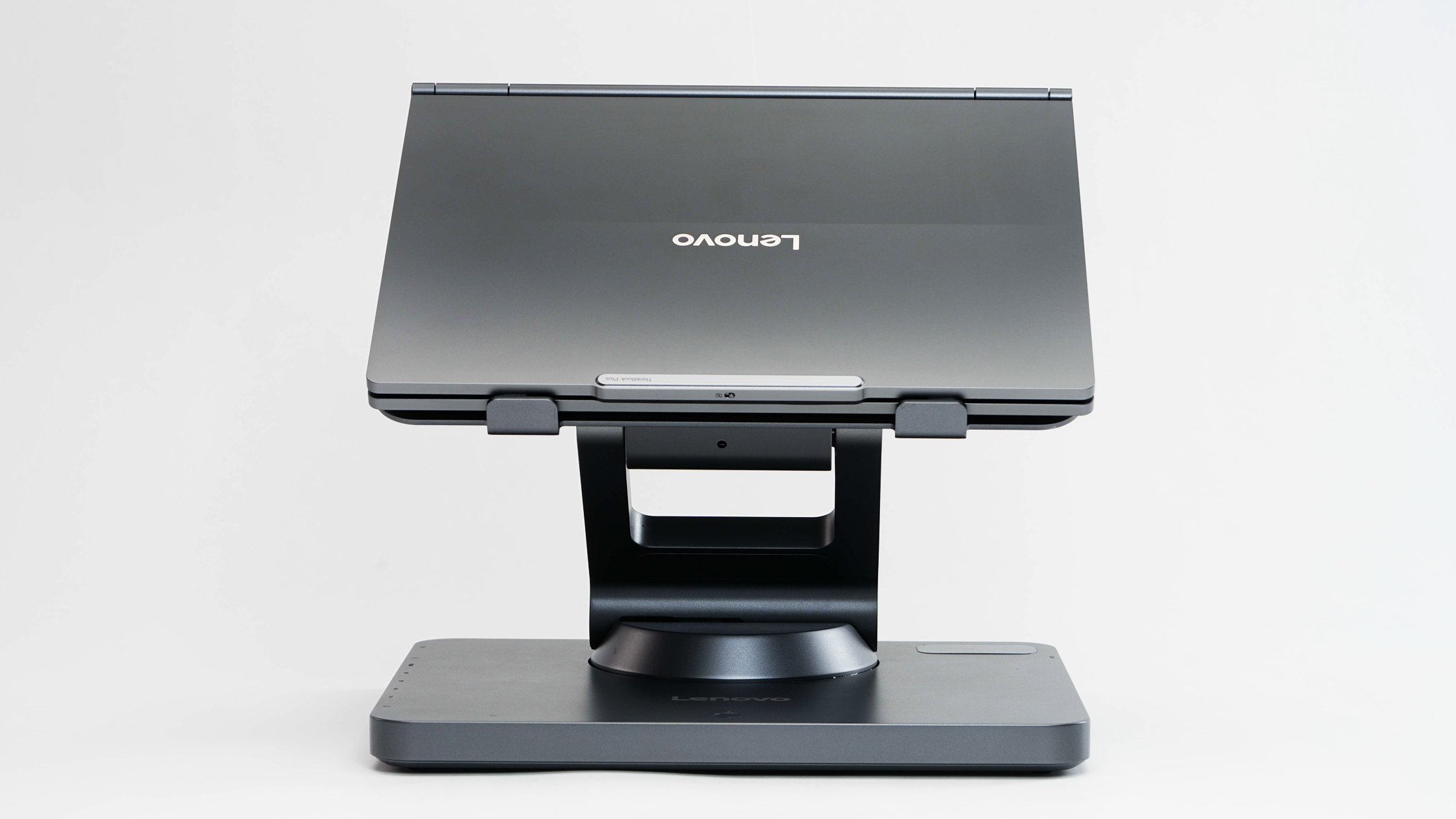
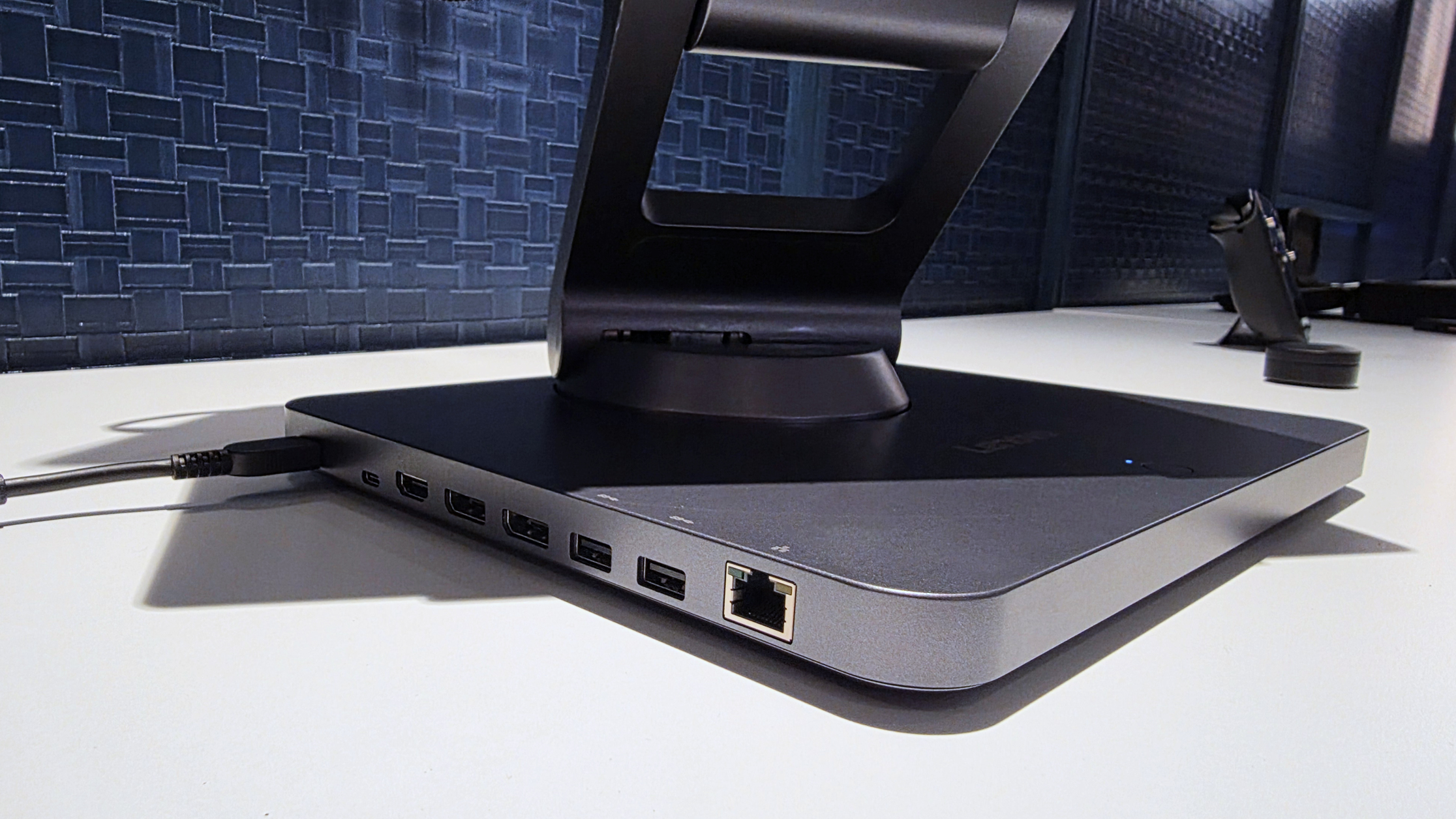
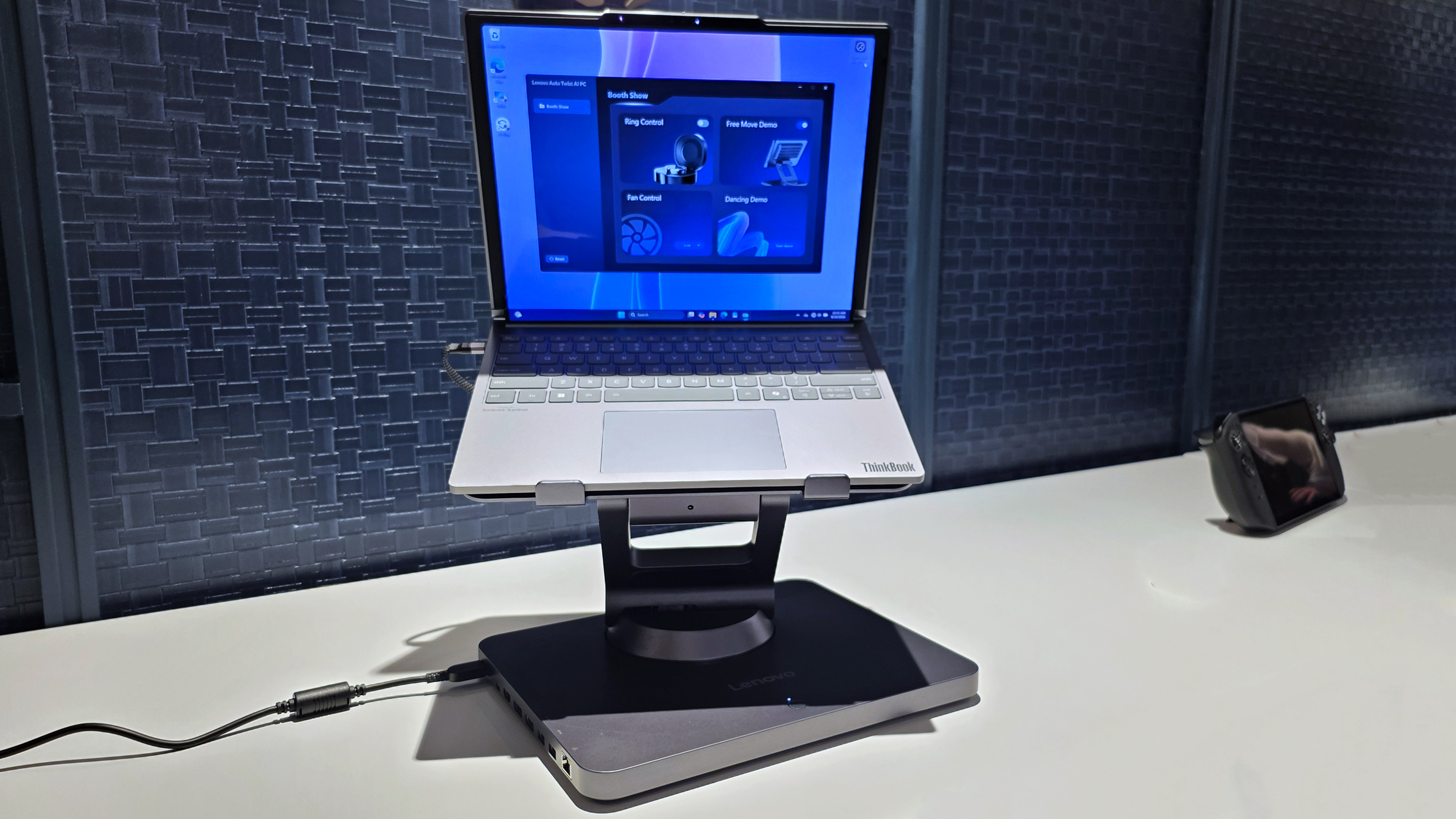
- What I like: If you’re a “one PC and that PC is my laptop” person who also docks at the office, this stand does everything, including keeping your laptop chilled and acting as a port extender, all via one cable. The dancing stuff is just a bonus and is effective.
- What I didn’t like: Even more so than the ThinkBook laptop, this stand seems extremely niche. Actually, if Lenovo dropped the motorized dancing, I think it’d be a killer laptop accessory for a lot of people, but the “ballet” part, while fun, is probably a step too far for many.
Chances of these concepts coming to market?

I remain skeptical of the Smart Motion stand as I don’t think many will need that (especially at what would be a high price point), but take out the motor and Lenovo could have a minor hit, even if it packs less “wow” ness.
The ThinkBook VertiFlex, however, seems much more likely to come to market. After all, Lenovo has a motorized laptop with a rollable OLED display on sale right now. Making some similar, but more affordable and less complicated, seems like a no-brainer, even if it would be a fairly specialized release.
Time will tell what Lenovo does, but needless to say, they always keep us on our toes. Let me know in the comments what you think of these two concepts and whether Lenovo should bring them to market!

Daniel Rubino is the Editor-in-Chief of Windows Central. He is also the head reviewer, podcast co-host, and lead analyst. He has been covering Microsoft since 2007, when this site was called WMExperts (and later Windows Phone Central). His interests include Windows, laptops, next-gen computing, and wearable tech. He has reviewed laptops for over 10 years and is particularly fond of Qualcomm processors, new form factors, and thin-and-light PCs. Before all this tech stuff, he worked on a Ph.D. in linguistics studying brain and syntax, performed polysomnographs in NYC, and was a motion-picture operator for 17 years.
You must confirm your public display name before commenting
Please logout and then login again, you will then be prompted to enter your display name.
